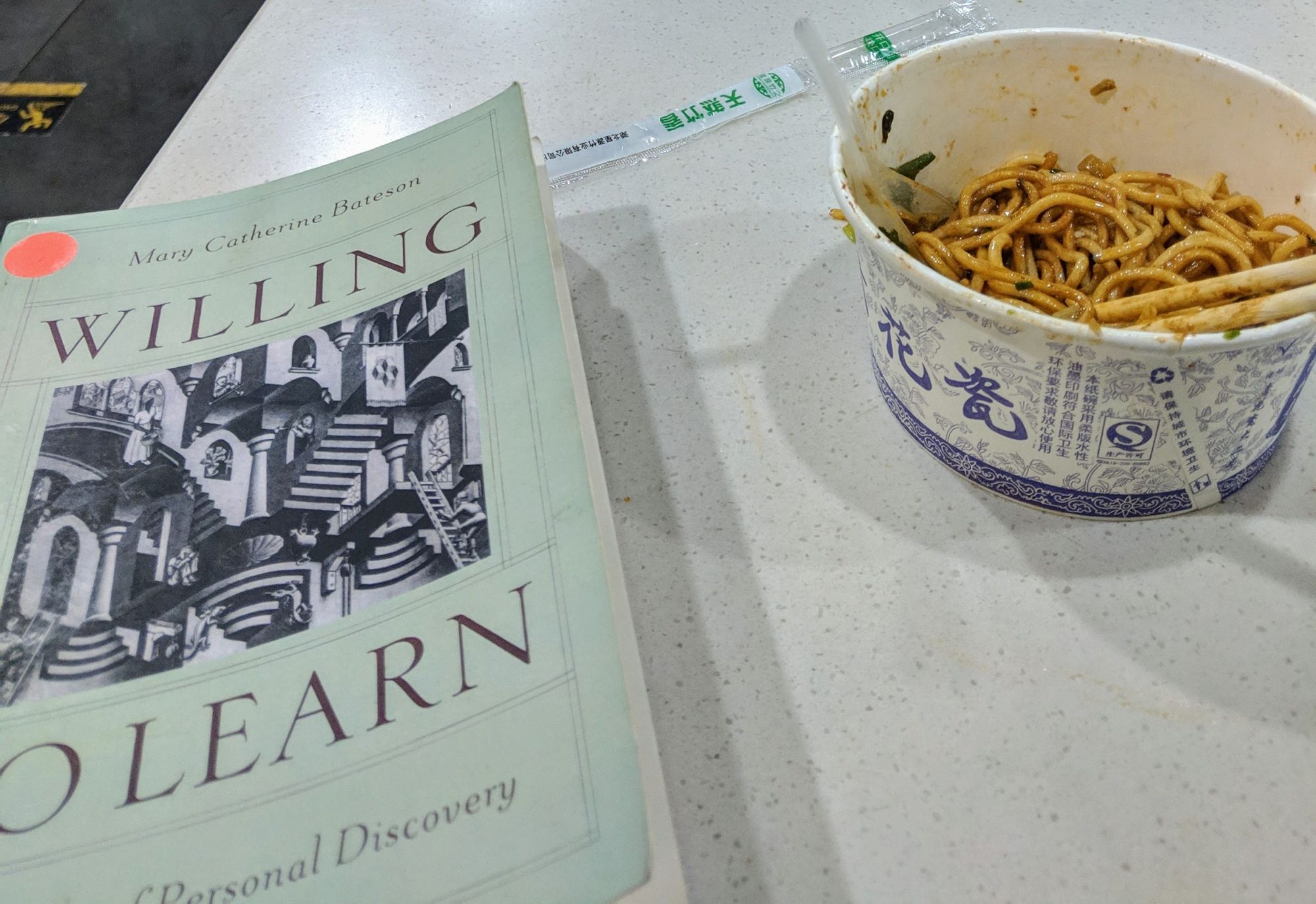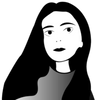Willing to Learn

Earlier this 2021, Mary Catherine Bateson passed away while surrounded by her family.
I never had the chance to meet Mary Catherine, MCB in my personal notes, but I had wanted to. To make a trip out to the east coast to just chat. To learn about her chapters of life and varied experiences over 81 years.
Below, I share my favorite excerpts from an essay (and intro) to her 2004 book, “Willing to Learn.” These excerpts are by no means comprehensive of her work and thoughts. They simply reflect a snippet of her words that stood out to me.
I hope her words stand out to you.
Excerpts from Willing to Learn, by MC Bateson
Introduction: Thinking Back
- You do not even know you “have” a culture until you encounter other ways of thinking and behaving.
- Habits of thought may be as distinctive as literary styles or even handwriting. Of the many possible ways of thinking, my background has led me to the lifelong search for pattern and its recurrence in difference contexts.
- In school I was drawn to math and the sciences on one hand and to poetry on the other, interests that converged first in linguistics and later in anthropology. This has meant a lifelong rhythm of introspection, connecting personal experience to more distance phenomena, exploring and testing metaphors and analogies to see what new insight they might reveal.
- I think that the best hope for our species lies in learning new patterns of attention to each other and to the biosphere, patterns that grow out of curiosity and respect and allow for wonder and learning.
- In seems to me that in trying to develop an understanding of matters of this sort, one has to move back and forth between very abstract and very specific levels of focus, and indeed between types of discourse varying from poetry to formal analysis.
Ways of Knowing: In Praise of Ambiguity
- Preparation for life is preparation for a long meander through uncertainty, for working with partial clues and rough approximations, for skillful guessing and zestful improvisation.
- The important thing is that my incomplete understanding was adequate for functioning, just as Ptolemaic astronomy is a pretty adequate basis for navigation.
- We all share the human tendency to make sense of jumbled or incomplete information, and it is precisely when we think we understand that we stop asking questions.
- We live in a technologically advanced mass society where numbers are more and more important. As weapons become more powerful, populations denser, and information more available, the demand for specificity and predictability increases. Nevertheless, in the back of our minds we all recognize that the imagination is nourished by vagueness and ambiguity and that human emotions do not work by the numbers.
- Once upon a time, all engineers had slide rules. Now they have calculators, and so does everyone else, so few acquire the skill of managing approximations.
- Human beings tend to find things because they know where to look. […] Skill lies in knowing which sequences to check, by a process that Herbert Simon called “selective heuristics.”
- Another loss is involved in the cultural shift away from a tolerance for ambiguity, and that is the loss of imagination, a loss of potentials for development and new understanding. What if a given question has no “correct answer” but only the vague intimation of one? Playing with the question and imagining possible answers is still valuable.
- “O frabjous day!” The incomplete and shifting understanding makes reading (and rereading) books of that sort an adventure, with different mental pictures for children of different ages and adults as well. Should a lesson always be unambiguous, or should there be gaps that call for imagination?
- One cannot defer decisions until one has found the absolutely correct answer. One must act, get involved, commit.
For other favorite conversations, please see:
